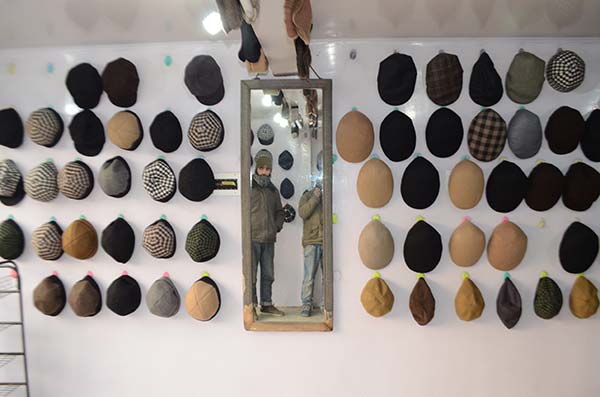In Kashmir where marriage ceremonies have become extravagant and finding matches increasingly worrisome, Humsafar has made the process simple and easier. Haroon Mirani meets the man behind the initiative, Fayaz Ahmad Zaroo.
In 2005 Fayaz Ahmad Zaroo was attending a weekly discussion programme of Islamic Dawah Centre at Chattabal, when the discussion shifted to marriage extravaganza and its ill-effects in Kashmir. As participants talked about the gloomy situation and its ill-effects on society Zaroo became disturbed.
“Everybody was saying that the trend needs to be arrested otherwise it will consume our society with disastrous results,” said Fayaz. “But nobody was coming forward with a concrete solution, so I thought let us give it a try.”
The idea of Humsafar Marriage Counseling Center was born there. Zaroo forwarded the concept to Mufti Nazir Qasimi of Darul Uloom Raheemiya. “Qasimi Sahib told us that first let us do a survey and identify the evils, then go for the remedy,” said Fayaz. “A complete report was drafted wherein all the extravaganza and other ills associated with marriages in Kashmir, both in rural as well as urban areas were listed.” Dowry, late marriages, rising extravaganza, immorality were the most prominent ills identified.
The Humsafar Marriage Counseling started working in 2005 with an aim to conduct the marriages according to Shariah in a simple way. “Alhamdullilah, we had a great response from people and youth from every section of society have been involved in this initiative,” said Fayaz. “As of now we have conducted 600 marriages and 5000 youths stand registered at Humsafar.”
Every day parents looking for matches for their wards arrive at Kaka Sarai office of Humsafar. The formalities are simple to follow, as they have to just get their daughter or son registered against a nominal fee of Rs 400. Then the matchmaking is initiated.
“We remain with the families of marrying couples for upto two days after the marriage ceremony so as to ensure that all the principles of Islam are being followed strictly,” said Zaroo. Humsafar clientele include doctors, engineers, IT personnel, businessmen and government employees.
Prior to Humsafar many initiatives have been taken to arrest the extravaganza in marriage ceremonies, but most were limited to controlling wazwan (sumptuous feats) and they soon fizzled out. Zaroo says that initially people were apprehensive of their campaign too but they soon realised that “we are not a commercial enterprise and it is a real (social reform) initiative.”
“The first marriage conducted at Humsafar was an interesting as well as impossible task,” said Fayaz. “It was the marriage of a widow who was in advanced age (48) and had children too. The groom (52) too was widowed with grown up children.”
On an average a typical Kashmiri marriage incurs a cost of a minimum of Rs five lakh and while on the higher end the cost runs in millions. With 600 marriages Humsafar has been instrumental in saving around half a billion rupees.
Above all Zaroo feels proud that they have been able to save lives of people too.
“There was one women who had decided to commit suicide after her prospective in laws demanded dowry worth Rs 10 lakh,” said Zaroo. “The in-laws had even asked her parents to sell their kidneys in order to pay the necessary dowry.”
“She had even written the suicide note when she came to know about Humsafar through a friend who had gone for simple marriage,” said Fayaz. “She forced her disheartened parents to go to Humsafar and now she stands married,” added Fayaz.
In the marriage expenses through Humsafar, Mehr comprises the major part, which is fixed as per the Islamic rules and has varied from Rs 5000 to Rs 50000.
Humsafar success has grabbed the media attention too – local, national and international. Fayaz says he often receives calls from places like USA, Canada and South Africa seeking advice, registration, or simply praising his work. Non Resident Kashmiris (NRK) are also among the clientele. “There are number of NRK boys and girls registered at Humsafar and their marriage process is on,” said Zaroo.
Last year a South African tourist group visited Humsafar after they had heard a lot about it in their country. “Some of them even registered for marriage here,” he said.
In 2009 when Hindustan times went for all India survey for identifying the social initiative of low cost marriage, they could zero in on only Humsafar. A senior reporter from New Delhi visited their office to document their history. “They even published our form and my contact number in their newspaper and after that I have been receiving calls from other Indian states too,” said Zaroo.
Radio Kashmir approached Fayaz to launch a counseling programme. The programme, Aalav, ran successfully for nine months.
Humsafar has been striving for improving the marriage processes in accordance with Islamic principles. “After two years we found that both men and women are ignorant about rights of spouses, and this leads to disputes,” said Fayaz. “So we started pre-marriage Maharaz (groom) and Mahrin (bride) courses for males and females respectively.”
The six month separate (for men and women) courses involve counselling of the prospective brides and grooms about the details of married life. “This has helped a lot in making the institution of marriage more successful.”
Some frauds have also tried to cash in on the rising popularity of Humsafar. “We have number of times apprehended people asking for donations in our name or starting a regular match making service in our name from other places,” said Fayaz.















